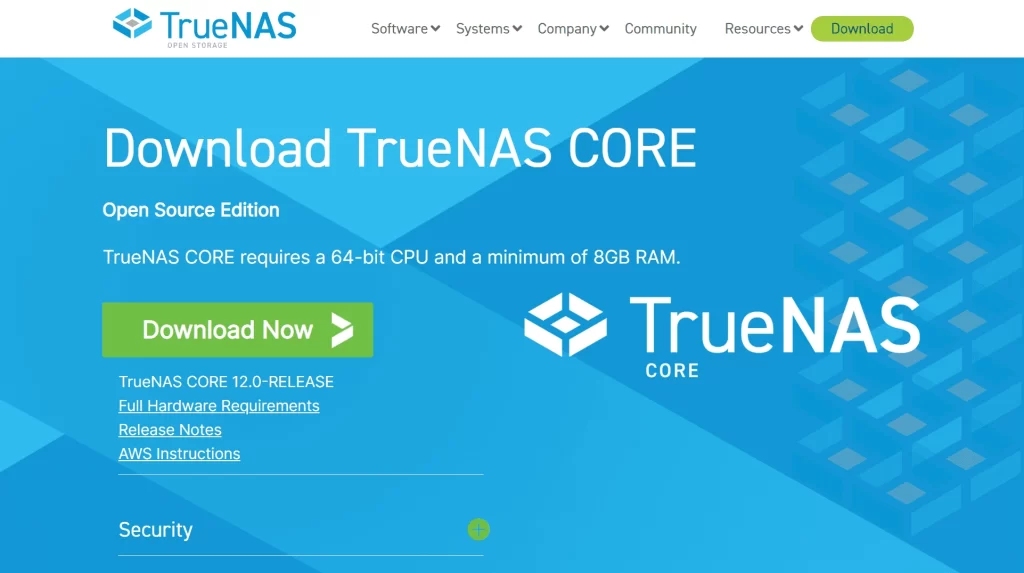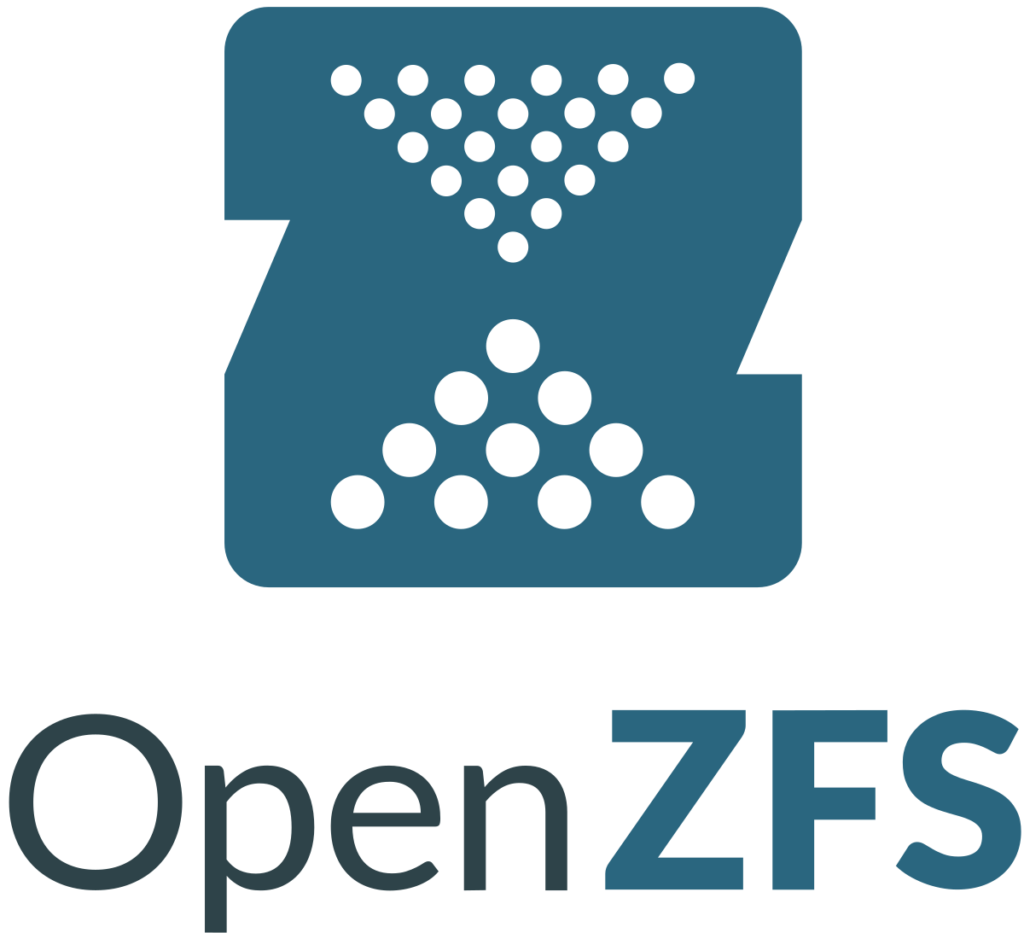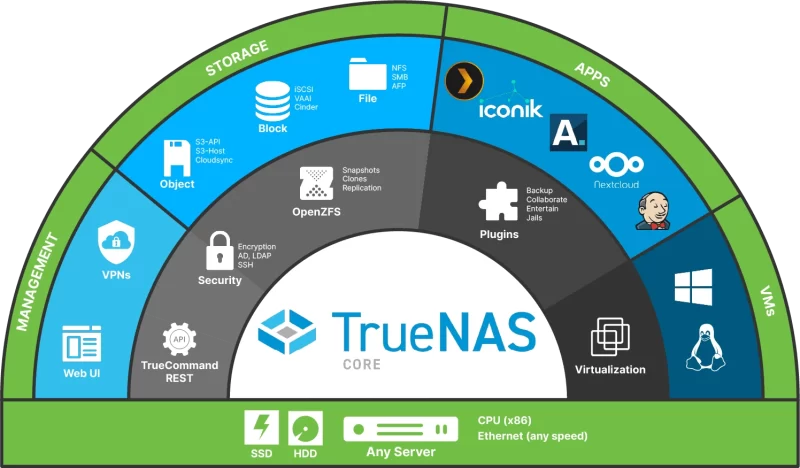When it comes to network-attached storage (NAS) solutions, TrueNAS has long been a reliable choice for individuals and businesses alike. Its robust features and capabilities have earned it a dedicated user base. However, as technology evolves and unique needs emerge, it’s essential to explore TrueNAS alternatives that may better suit your requirements. In this comprehensive guide, we’ll dive deep into the world of TrueNAS alternatives, exploring their features, limitations, and what sets them apart.
Understanding TrueNAS

Before we venture into the realm of TrueNAS alternatives, let’s take a moment to understand what TrueNAS is all about.
Features of TrueNAS
TrueNAS, previously known as FreeNAS, is an open-source NAS operating system that provides an array of impressive features:
- ZFS Integration: TrueNAS boasts seamless integration with the ZFS file system, offering advanced data protection and management capabilities. ZFS is renowned for its data integrity and efficient use of storage resources, making it a preferred choice for those who prioritize data reliability.
- Web-Based Interface: Its user-friendly web interface simplifies storage management, making it accessible to users of all skill levels. Whether you’re a novice or an experienced IT professional, TrueNAS’s intuitive interface ensures that you can efficiently navigate and configure your NAS system.
- Data Redundancy: With support for RAID configurations and data replication, TrueNAS ensures the safety and availability of your data. This redundancy is crucial for businesses that cannot afford data loss due to hardware failures.
- Plugins and Extensions: The platform supports a variety of plugins and extensions, allowing you to customize your NAS environment. This flexibility empowers you to extend your NAS functionality beyond basic storage, adding media servers, backup solutions, and more.
Limitations of TrueNAS
While TrueNAS is a powerful solution, it’s not without its limitations:
- Hardware Compatibility: TrueNAS can be resource-intensive, requiring specific hardware configurations for optimal performance. To harness its full potential, you’ll need to invest in hardware that aligns with TrueNAS’s requirements, which may not always be cost-effective.
- Complexity: Setting up and configuring TrueNAS can be daunting for beginners, necessitating a learning curve. The intricacies of ZFS, while beneficial, can also be overwhelming for those new to NAS systems.
- Lack of Commercial Support: Unlike some TrueNAS alternatives, TrueNAS primarily relies on community support, which may not suit all users. Businesses that require dedicated commercial support may find this aspect lacking.
What Sets TrueNAS Apart?
TrueNAS stands out due to its open-source nature, robust ZFS integration, and the ability to create a highly customized NAS environment. Its combination of features, data protection, and extensibility make it a strong choice for many users. However, there are instances where exploring TrueNAS alternatives becomes necessary.
Commonly Used TrueNAS Alternatives

Let’s delve into the world of TrueNAS alternatives, each catering to different needs and preferences.
1. FreeNAS
FreeNAS, the predecessor of TrueNAS, continues to be a compelling choice for those seeking an open-source NAS solution. It offers a user-friendly interface and robust ZFS integration, similar to TrueNAS. While it shares its roots with TrueNAS, FreeNAS remains a viable option for enthusiasts and small-scale deployments. Its active community ensures a steady stream of updates and plugins, making it a versatile solution for those who appreciate the open-source ethos.
2. OpenMediaVault
OpenMediaVault, based on Debian, provides a straightforward NAS solution with a web-based interface. It’s an excellent choice for home users and small businesses, offering flexibility and extensibility through plugins. OpenMediaVault’s modular design allows users to add features as needed, making it an adaptable platform. The ease of installation and configuration makes it an attractive option for those new to NAS systems.
3. NAS4Free
NAS4Free, known for its simplicity and stability, is ideal for users who prioritize reliability. It supports various sharing protocols, including CIFS/SMB, NFS, and AFP, making it compatible with a wide range of devices. NAS4Free’s minimalistic approach focuses on core NAS functionality, making it a no-nonsense solution for those who need dependable file storage and sharing.
4. Rockstor
Rockstor, built on the Btrfs file system, offers features like snapshots and replication. It’s an appealing option for those who favor Btrfs and require advanced storage capabilities. Rockstor’s dedication to the Btrfs ecosystem ensures that users benefit from the file system’s inherent data integrity features. The ability to create pools of storage and expand them as needed makes Rockstor a flexible choice.
5. Openfiler
Openfiler, a Linux-based NAS/SAN solution, caters to enterprise-level storage needs. It supports iSCSI, NFS, and clustering, making it suitable for larger-scale deployments. Openfiler’s robust feature set includes real-time storage analytics, ensuring administrators have insights into storage performance. While it may be overkill for home users, businesses with substantial storage requirements will find Openfiler a worthy contender.
6. Synology DSM
Synology’s DiskStation Manager (DSM) stands out as a user-friendly, feature-rich NAS solution. It comes pre-installed on Synology hardware, providing a seamless out-of-the-box experience. DSM’s polished web interface makes it easy for users to set up and manage their NAS systems. Its Package Center offers a vast selection of applications, from media servers to security tools, enhancing its versatility.
7. QNAP QTS
QNAP’s QTS is another proprietary NAS operating system offering a wide range of features and applications. It’s known for its performance and versatility, making it suitable for various use cases. QTS’s app-centric approach allows users to tailor their NAS experience to their specific needs. With features like virtualization support and a container station, it’s a robust solution for businesses and power users.
8. Unraid
Unraid takes a unique approach, allowing users to create a single, scalable storage pool while running virtual machines and Docker containers on the same hardware. It’s perfect for those with diverse requirements. Unraid’s emphasis on virtualization sets it apart, making it an excellent choice for individuals and businesses seeking a unified storage and virtualization solution.
9. Amahi
Amahi, designed for home network management, serves as a versatile home server software. It combines NAS capabilities with media server functionality, making it a holistic choice for media enthusiasts. Amahi’s app store offers a range of applications, simplifying the process of extending your server’s capabilities. This TrueNAS alternative is particularly attractive for those looking to consolidate their media and storage needs.
10. OpenZFS on Linux (OZOL)
For those who prefer a DIY approach, OpenZFS on Linux (OZOL) allows you to build a custom NAS system. This option provides flexibility and control over your storage environment. OZOL’s compatibility with various Linux distributions means you can choose an OS that aligns with your preferences. While it requires more technical expertise, it offers the freedom to tailor your NAS system precisely to your requirements.
Factors To Consider While Choosing The Perfect TrueNAS Alternative

Selecting the ideal TrueNAS alternative requires careful consideration of several factors. Let’s explore these crucial aspects:
1. Hardware Compatibility
Ensure that the chosen TrueNAS alternative is compatible with your existing hardware or that you’re willing to invest in compatible components. Hardware requirements vary, so double-check to avoid compatibility issues. For instance, if you’re considering a solution like Unraid, make sure your hardware meets its virtualization requirements.
2. Scalability
Consider your future storage needs. Will the TrueNAS alternative accommodate your growing data requirements, or will you face limitations down the road? Scalability is a vital factor to ponder. Solutions like QNAP QTS and Synology DSM offer options for expanding storage capacity with additional drives or expansion units.
3. Ease of Use
Evaluate the user-friendliness of the TrueNAS alternative. If you’re new to NAS systems, opt for a solution with an intuitive interface and ample documentation. OpenMediaVault and Synology DSM are known for their ease of use, making them suitable for beginners.
4. Support and Community
Assess the level of support and community engagement for the TrueNAS alternative. Robust community support can be invaluable when troubleshooting issues. Solutions like FreeNAS and OpenMediaVault benefit from active user communities that provide assistance and share knowledge.
5. Cost
Determine your budget for both hardware and software. Some alternatives may require an upfront investment, while others are more budget-friendly. Keep in mind that the total cost of ownership includes not only the initial hardware and software expenses but also ongoing maintenance and potential upgrades.
Conclusion
In the realm of NAS solutions, TrueNAS has long held its ground as a reliable choice. However, the ever-evolving landscape of technology and diverse user requirements necessitate exploring alternatives. From FreeNAS to QNAP QTS, each option brings its unique strengths and features to the table. By carefully considering your needs and priorities, you can find the perfect TrueNAS alternative that suits your storage and data management goals.
In your quest for the ideal NAS solution, remember that the landscape is vast and constantly evolving. Keep an eye on emerging technologies and user experiences to ensure your choice aligns with your long-term objectives.









